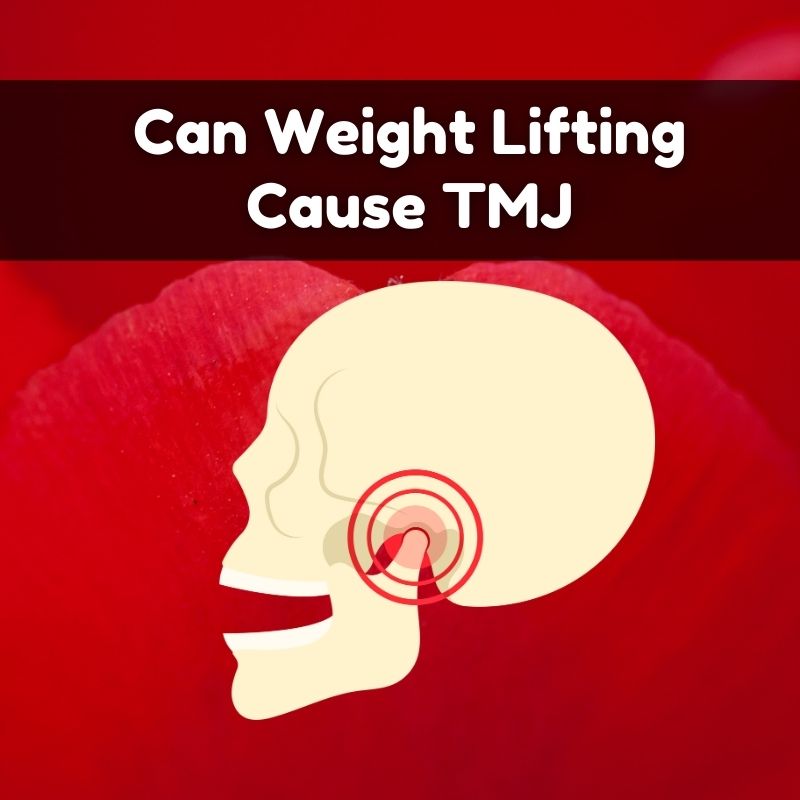
Weight lifting, while beneficial for overall health and fitness, can potentially contribute to temporomandibular joint (TMJ) disorders under certain conditions. Here’s a detailed look at how weight lifting might influence TMJ issues and what you can do to mitigate potential risks:
How Weight Lifting Might Affect TMJ
- Strain and Tension:
- Exertion: During weight lifting, especially with heavy loads, the body experiences significant exertion. This strain can sometimes lead to increased muscle tension in the neck, shoulders, and jaw area.
- Jaw Clenching: Some people tend to clench their jaws when lifting heavy weights, which can place additional stress on the TMJ. Over time, this clenching can contribute to TMJ discomfort or exacerbate existing issues.
- Posture Issues:
- Poor Posture: Incorrect posture during weight lifting, such as leaning forward or improper alignment, can lead to imbalances and strain in the neck and jaw. This can indirectly affect the TMJ and surrounding muscles.
- Muscle Imbalance: Weight lifting can sometimes lead to muscle imbalances if certain muscles are overdeveloped compared to others, potentially affecting the alignment and function of the jaw.
- Repetitive Strain:
- Repetitive Movements: Engaging in repetitive lifting or exercises that require extensive use of the upper body can lead to overuse of the muscles around the TMJ, potentially contributing to TMJ disorders.
Symptoms of TMJ Disorders
If weight lifting or any other activity is contributing to TMJ issues, you might experience symptoms such as:
- Jaw Pain: Pain or tenderness in the jaw joint or muscles.
- Clicking or Popping: Sounds coming from the jaw joint when opening or closing the mouth.
- Limited Jaw Movement: Difficulty moving the jaw fully or pain while doing so.
- Headaches: Tension headaches that may be linked to jaw clenching or stress.
Preventive Measures
- Proper Technique:
- Correct Form: Ensure you are using proper form and technique during weight lifting to avoid unnecessary strain on the body.
- Professional Guidance: Consider working with a certified trainer to ensure that your lifting techniques are correct and that you are not inadvertently placing stress on your jaw.
- Mindfulness of Jaw Clenching:
- Awareness: Be mindful of whether you are clenching your jaw during lifts and try to relax your jaw muscles.
- Relaxation Techniques: Incorporate relaxation techniques such as deep breathing or progressive muscle relaxation to help manage tension.
- Posture and Ergonomics:
- Postural Correction: Focus on maintaining good posture during workouts and throughout daily activities to reduce the risk of muscle imbalances that can affect the TMJ.
- Stretching and Strengthening: Engage in exercises that balance muscle development and include stretches for the neck and jaw to reduce tension.
- Rest and Recovery:
- Adequate Rest: Allow time for muscle recovery and avoid overtraining, which can contribute to muscle tension and strain.
- Jaw Care: If you experience TMJ symptoms, give your jaw adequate rest and consider applying warm compresses or using over-the-counter pain relief if needed.
- Consult Healthcare Professionals:
- Dentist or TMJ Specialist: If you have persistent TMJ symptoms, consider consulting a dentist or a TMJ specialist for a thorough evaluation and tailored treatment options.
- Physical Therapist: A physical therapist can help with exercises and techniques to alleviate muscle tension and improve posture.
Conclusion
While weight lifting itself is not a direct cause of TMJ disorders, improper technique, excessive strain, or muscle tension related to weight lifting can potentially contribute to TMJ issues. By focusing on proper lifting techniques, maintaining good posture, and being mindful of jaw tension, you can help minimize the risk of developing TMJ problems. If TMJ symptoms arise, seeking advice from healthcare professionals can provide targeted treatment and relief.
